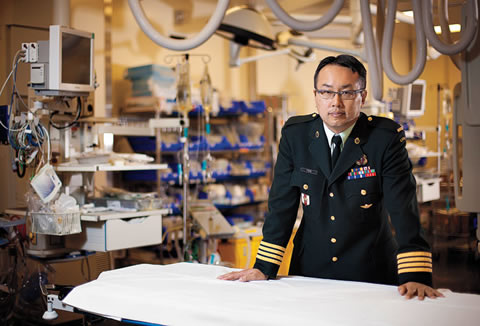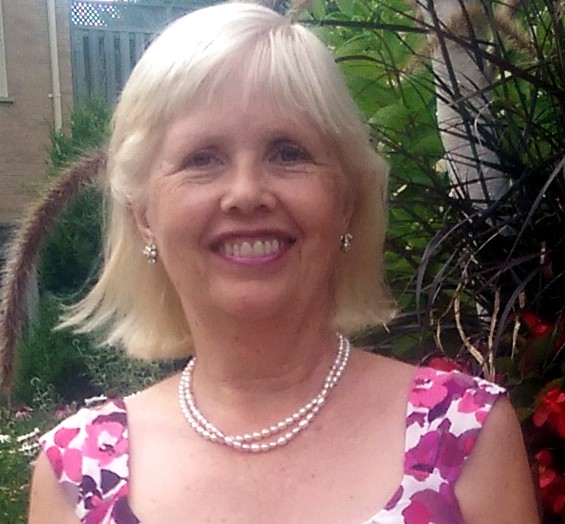When Dr. Homer Tien is asked why he received the Order of Military Merit in December, he shrugs. “I guess because I’ve been in the Forces for a while,” he offers modestly.
Only later does the colonel, who is also director, trauma services, at Sunnybrook Health Sciences Centre and a U of T professor, recall his exceptional advancements. “In ’96, I was the first medical officer posted to the Canadian military counterterrorism team on the NATO mission in Bosnia. And, oh yeah, in 2006 I was the first Canadian surgeon deployed to Kandahar,” he says.
Since then, Tien has been deployed to Afghanistan five times, most recently last fall for a two-month tour of duty. At the Kandahar military base, Tien would start the day by strapping on a 9 mm Browning pistol. “I’m so used to wearing a gun, I didn’t even think of it,” he says. Then he’d grab a coffee at the base’s Tim Hortons and head to the military hospital. He would perform such procedures as digging shrapnel out of the bodies of British, American and Canadian coalition soldiers, and caring for civilians who had stepped on landmines. “Amputation is common with a landmine injury,” he explains. “Sometimes we have to do a triple amputation, which is really sad, especially with a child.”
On occasion, Tien would work 36 hours straight – without complaining. “The only thing I have to do on the base is work,” he explains. At home, he’s busy helping his wife drive their three daughters to music lessons and sporting events.
Tien enlisted in the Canadian Forces in 1990 to pay for medical school at McMaster. Later, his military service funded surgical training at U of T and a two-year fellowship with Sunnybrook’s trauma team. Tien also earned a master’s degree in clinical epidemiology at U of T, graduating in 2007. Now a U of T assistant professor, he excels in teaching the intricacies of treating blast injuries and gunshot wounds.
Perhaps Tien’s greatest teaching, though, is leadership. “In medical school there is very little formal teaching of leadership training but in the military you receive a lot. You learn to be decisive in an emergency situation and assertively pass on your decisions. You learn you absolutely must not waffle.”
Tien also has a teaching role in the Forces. In 2007, for example, he trained military medical technicians to perform on the battlefield an emergency cricothyrotomy, which involves making a cut in the neck and inserting a breathing tube through the slit. “Medical technicians had never done it before, and they do a very good job in a very difficult environment,” says Tien, whose research focuses on military medicine, including war surgery.
Back in Toronto, Tien cares for Ontario’s most seriously injured. They come by helicopter or ambulance after falling from the high beam of a construction site or being cut out of a mangled car on the 401. About 50 per cent die before they get to Sunnybrook’s Tory Regional Trauma Centre where Tien is the medical director, but a remarkable 90 per cent survive if only they can arrive with a beating heart.







No Responses to “ Facing an Emergency? ”
Outstanding soldier and doctor. As a former Canadian Armed Forces officer, I salute him.
A very good man and a great teacher.